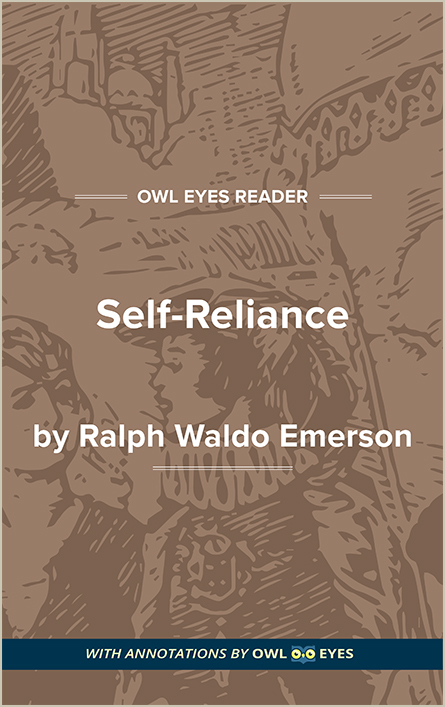Analysis Pages
Thesis in Self-Reliance
Thesis Examples in Self-Reliance:
Self-Reliance
🔒"I hope in these days we have heard the last of conformity and consistency...." See in text (Self-Reliance)
"To believe your own thought, to believe that what is true for you in your private heart is true for all men,— that is genius...." See in text (Self-Reliance)
"All men plume themselves on the improvement of society, and no man improves...." See in text (Self-Reliance)
"Another sort of false prayers are our regrets. Discontent is the want of self-reliance: it is infirmity of will...." See in text (Self-Reliance)
"“Thy lot or portion of life,” said the Caliph Ali, “is seeking after thee; therefore be at rest from seeking after if.”..." See in text (Self-Reliance)
"Yet see what strong intellects dare not yet hear God himself unless he speak the phraseology of..." See in text (Self-Reliance)
"An institution is the lengthened shadow of one man..." See in text (Self-Reliance)
"He who is really of their class will not be called by their name, but be wholly his own man..." See in text (Self-Reliance)
"Society never advances. It recedes as fast on one side as it gains on the other..." See in text (Self-Reliance)
"A foolish consistency is the hobgoblin of little minds, adored by little statesmen and philosophers and divines..." See in text (Self-Reliance)

